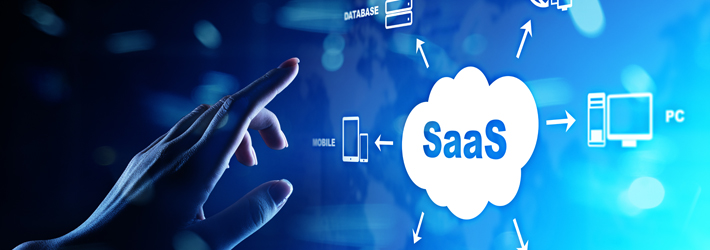Last Updated on January 13, 2025 by Deepanshu Sharma

The SaaS (Software as a Service) industry is booming. However, given the complex and distributed nature of SaaS environments, there are many data security/privacy threats that need to address. The COVID-19 pandemic has accelerated the shift towards online activities, accompanied by an increase in global data protection/privacy regulations. Presently, over 132 countries have enacted their own laws and regulations in this regard, and SaaS vendors must find a way to keep abreast of as many of these regulations as possible.
What is SaaS Compliance?
SaaS compliance encompasses a range of guidelines, protocols, and requirements that SaaS providers must adhere to. While SaaS vendors are subject to various types of regulations, such as those relating to revenue recognition, this article focuses on the regulations and standards pertaining to data security, which stipulate how SaaS providers handle customer data.
Why is SaaS Compliance Important?
Most SaaS products rely on third-party integrations, and any of these third-party tools could potentially violate security and privacy laws. Ensuring compliance with SaaS regulations is crucial for the following reasons;
- It is considered good practice to proactive manage security risks.
- It instills trust and confidence in investors.
- It ensures that employees handle data with the utmost care, thus minimizing the risk of data breaches.
- It helps protect companies from costly lawsuits and fines.
- It attests to the integrity of data processing activities.
Other Regulations Relevant to SaaS
As a starting point, it is essential to have knowledge of the main regulations and standards that are relevant to the SaaS industry, which is explained below.
ISO/IEC 27001 is a globally-recognized standard for information security management. It outlines a framework of policies, procedures, and practices for companies to manage the confidentiality, integrity, and availability of their critical assets.
SOC 2 (Service Organization Control 2) is a standardized auditing procedure developed by the American Institute of Certified Public Accountants (AICPA) to evaluate the level of security, availability, integrity and privacy of a service provider’s systems and processes. SOC 2 is widely recognized as a gold standard for assessing the security and reliability of SaaS platforms and applications.
PCI-DSS (The Payment Card Industry Data Security Standard) is a set of security standards designed to ensure that all companies that accept, process, store or transmit credit card information maintain a secure environment.
GDPR (General Data Protection Regulation) was introduced by the European Union in May 2018. It is designed to protect the privacy of personal data belonging to EU citizens, and violations of GDPR can result in hefty fines.
HIPAA (Health Insurance Portability and Accountability Act) is a U.S. federal law that was established in 1996 to protect the privacy of individuals’ health information.
CCPA (California Consumer Privacy Act) is a data privacy regulation that came into effect on January 1, 2020. CCPA gives California residents the right to know what personal information is being collected about them by companies and also gives them the right to request that the data be deleted.
SaaS Compliance Audit Checklist
Now that you a familiar with the most relevant laws and standards, you can work through the following checklist;
- Select a chief compliance officer (CCO) to supervise your company’s compliance program, address and resolve regulatory compliance difficulties, and monitor all internal operations.
- Establish organization-wide security policies and protocols. Each policy must undergo an annual review and the compliance team should stay informed of the latest changes in regulations.
- Conduct regular internal and external audits to ensure that your security controls are effective.
- Monitor all access to protected data, and get notified, in real-time, of any suspicious activities.
- Conduct risk assessments, annually or following major policy changes, to proactively identify vulnerabilities.
- Develop secure software. Ensure that security and compliance are considered at every stage of the software development lifecycle. This includes planning, design, coding, testing, deployment, and maintenance phases.
- Educate employees. Make sure that every staff member is informed of their security obligations and equipped to actively detect potential risks. Creating a culture of security necessitates the active participation of all members of the organization.
- Encrypt all sensitive data at rest and in transit, which involves carefully handling encryption keys. You should also ensure that confidential data is logically partitioned.
How does Lepide Help with SaaS Compliance?
The Lepide Data Security Platform helps you identify and respond to potential security threats in a timely manner. It also helps you comply with the relevant data privacy laws and standards, such as; ISO/IEC 27001, SOC 2, PCI-DSS, GDPR, HIPAA, CCPA, and more. Anytime protected data is accessed or changed in a way that is deemed suspicious, a real-time alert is sent to your inbox or mobile device. At the click of a button, you can generate pre-defined compliance reports that can be sent to the relevant authorities to demonstrate your compliance efforts. The platform also enables you to automatically discover and classify data according to the above laws and standards, making it significantly easier to comply with Subject Access Requests (SARs) and assign secure access controls.
If you’d like to see how the Lepide Data Security Platform can help with SaaS compliance, schedule a demo with one of our engineers.


 Group Policy Examples and Settings for Effective Administration
Group Policy Examples and Settings for Effective Administration 15 Most Common Types of Cyber Attack and How to Prevent Them
15 Most Common Types of Cyber Attack and How to Prevent Them Why AD Account Keeps Getting Locked Out Frequently and How to Resolve It
Why AD Account Keeps Getting Locked Out Frequently and How to Resolve It
